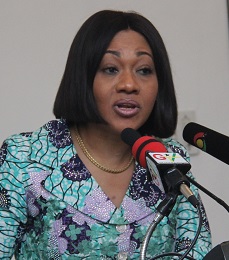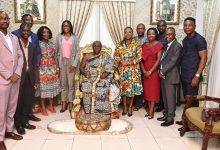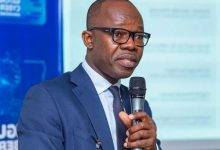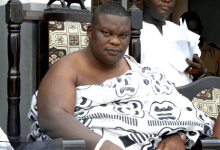
Chairperson of the Electoral Commission (EC), Mrs Jean Adukwei Mensa, has scored her outfit high marks in the organisation of the 2020 presidential and parliamentary elections.
In the view of the EC boss, the success level of the polls, amidst the Coronavirus pandemic, was “historic”; never seen in Ghana’s electioneering narrative.
Speaking at the opening of the ongoing Extraordinary Session of the Fifth Legislative Assembly of the Economic Community of West African States (ECOWAS) Parliament in Winneba, Mrs Mensa said the region has a lot to learn from Ghana’s experience.
“I humbly refer to Ghana’s 2020 elections as a historic election for the transparency, the credibility, the cost-effectiveness, the high turnout, and peaceful conduct that characterized it.
“So orderly, so methodical, so calm were the polls on 7 December, 2020 that BBC Africa could found no other way to describe our elections than ‘boring'”, she recounted.
This success, she said, was chalked within six months though the pandemic interrupted the electioneering calendar.
“Within that short space of time, we completed every electoral process including introducing and deploying a new Biometric Voter Management System, comprising hardware and software and preparing a new biometric voters register…..from June 30 when we started the registration exercise to December, 9 when we declared the results.”
The efficiency of the coverage in the voter registration exercise, Mrs Adukwei Mensa said, was attested to by the recently released population census figures that placed Ghana’s population at 30.8 million as the 17 million and 27 Thousand voters on the register, representing 55.2 per cent of the population, meets international standards for registration of voters.
“The efficiency of our electoral process did not end with the voter registration exercise. On voting day, we reduced the time it took a voter to vote from 10 to 12 minutes per voter to 3-5 minutes. Thanks to the robust and efficient biometric verification devices deployed.”
She told lawmakers from the 15-member states of the Community that”ground-breaking” best practice for the achievement of orderly and swift polling processes were invented “and so, for the first time in our history, there were no long queues, no frustrated crowds, and no disgruntled voters on voting day”.
The EC chair reported that to ensure that the process was transparent, the Commission updated the citizenry on daily basis on the number of people registered nationwide through the ‘Let the Citizen Know’ series adding that “we proved that electoral processes in West Africa can be transparent”.
“On this platform, we provided citizens information on ongoing activities, and answered their questions and concerns, helping us open up our processes and demystify our work. Through this platform, we provided swift responses and facts to counter fake news thereby substantially reducing the tensions and fears that usually arise from fake news and the lack of information.”
Unlike in previous elections, Jean Mensa said regional coalition centres were established to allow party agents to further scrutinise, affirm and collate results from constituencies within their regions before submission to the national collation centre, further deepening the transparency.
With strict financial and procurement protocols, Jean Mensa said the cost of the polls, compared to the 2016 one was reduced by 41, per cent not withstanding inflation and price hikes.
“We cut the cost per voter from US$13 in 2016 to US$7.70 per head in 2020 at the time the cost of elections were rising worldwide. Through this reduction in cost, we saved our country a formidable US$90 million,” she said to applause.
She decried the seven deaths recorded during the elections, distanced the Commission from them and asked the police to share their findings and recommendations for future learning.
FROM JULIUS YAO PETETSI, WINNEBA





